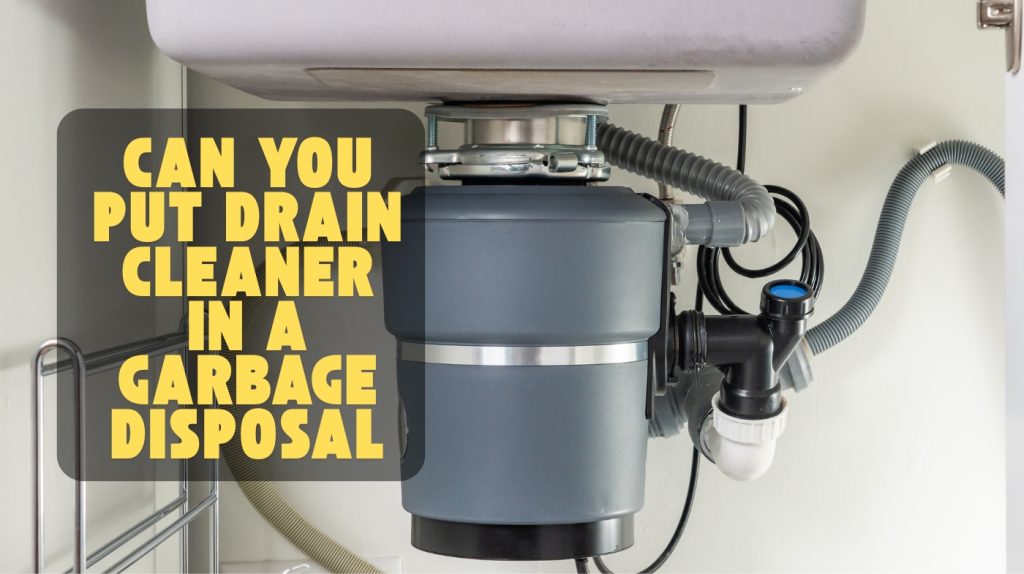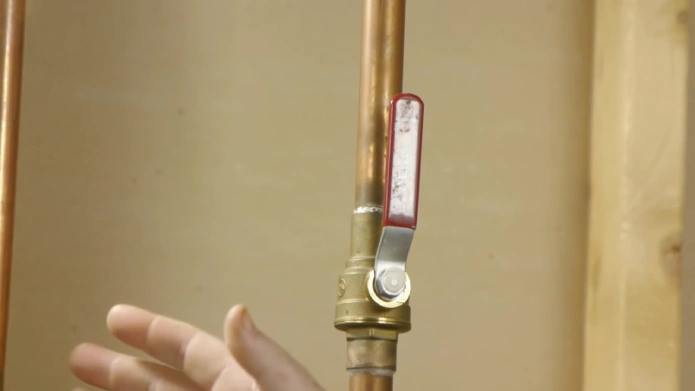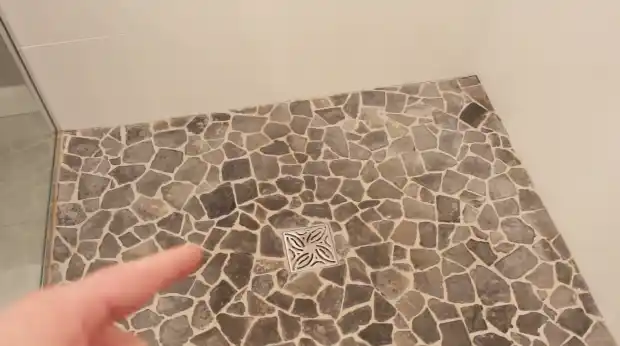Last Updated on August 6, 2025
You shouldn’t put drain cleaner in your garbage disposal, as the harsh chemicals like sodium hydroxide and sulfuric acid can corrode metal parts, warp seals, and damage plastic components.
These cleaners often fail to clear common food clogs effectively and pose serious health and environmental risks. Using them can lead to costly repairs or unsafe conditions.
Instead, following proper maintenance and safer cleaning methods keeps your disposal working smoothly. Learn how to protect your unit and avoid common hazards.
Key Takeaways
- Chemical drain cleaners contain harsh substances that can corrode garbage disposal components and cause irreversible damage.
- Using drain cleaners in disposals risks rubber gasket drying, metal pitting, and plastic part brittleness.
- Chemical cleaners are ineffective on food waste clogs and can produce harmful heat and toxic fumes.
- Mechanical or enzyme-based methods are safer and more effective alternatives for clearing disposal clogs.
- Never pour chemical drain cleaners into garbage disposals; follow proper disposal and maintenance guidelines instead.
Chemical Composition of Drain Cleaners
Although drain cleaners vary widely in formulation, they primarily rely on strong chemical agents such as sodium hydroxide, sulfuric acid, and sodium hypochlorite to break down clogs.
Drain cleaners mainly use powerful chemicals like sodium hydroxide, sulfuric acid, and sodium hypochlorite to dissolve clogs. Sodium hydroxide, a potent alkaline, dissolves organic materials like hair and grease via saponification.
Sulfuric acid, a highly corrosive acid, dehydrates and breaks down clogs while generating heat to enhance effectiveness. Sodium hypochlorite acts as an oxidizer, altering clog chemistry for easier removal.
Use materials resistant to sodium hypochlorite’s oxidative effects, such as chlorine-resistant tubing, to prevent damage. Some formulations include potassium hydroxide, aluminum particles for heat generation, and additives like corrosion inhibitors or wetting agents to improve performance.
These chemicals react exothermically with water and organic matter, so you must handle them carefully to prevent pipe damage or personal injury. Caustic and acidic drain cleaners are the two main types you will find, each suited for different clog compositions.
Impact of Drain Cleaners on Garbage Disposal Components
Drain cleaners rely on powerful chemicals like sodium hydroxide and sulfuric acid to break down clogs, but these substances can severely damage garbage disposal components. These corrosive agents degrade metal grinding blades, causing pitting and weakening that increase mechanical failure risks.
Rubber gaskets dry out, crack, and lose flexibility, while plastic parts may become brittle and fracture. Chemical reactions also generate heat inside the disposal chamber, warping components and stressing seals. This thermal stress accelerates material breakdown and may cause misalignment or jamming.
Additionally, chemical residues can interact with food waste, forming sticky deposits that impair grinding efficiency. Such damage raises repair costs and shortens your disposal’s lifespan.
For safety and longevity, avoid using harsh drain cleaners in your garbage disposal to prevent component corrosion, leaks, and hazardous chemical exposure. Using appropriate chemical-resistant materials can help improve the durability of water system components under harsh conditions.
Effectiveness of Drain Cleaners for Garbage Disposal Clogs
You shouldn’t rely on chemical drain cleaners to clear garbage disposal clogs because their action is limited against compacted food waste and grease.
Mechanical grinding challenges within the disposal often require physical removal methods instead of chemical dissolution. Additionally, chemical cleaners can cause pipe damage and pose health risks, making them an unsafe choice.
Chemical Action Limitations
When you rely on chemical drain cleaners to clear clogs in your garbage disposal, you’ll likely find they don’t work as intended. These cleaners contain corrosive agents like sodium hydroxide or sulfuric acid, designed to dissolve organic matter in pipes, not food waste inside disposals.
Since disposals operate by mechanical grinding, the chemical action struggles to penetrate or break down fibrous food particles, fats, and grinding chamber jams effectively.
Additionally, these harsh chemicals can corrode metal blades, seals, and gaskets, compromising disposal integrity over time. Using chemical cleaners can also pose health hazards if inhaled or contact with the skin.
Before attempting any cleaning method, turn off power supply to ensure safety. Rather than resolving the clog, chemical cleaners may cause mechanical degradation and safety hazards.
For effective and safe clog removal, rely on mechanical methods or professional servicing instead of chemical dissolution, which is neither efficient nor designed for garbage disposal systems.
Mechanical Grinding Challenges
How effective are chemical drain cleaners at clearing clogs in garbage disposals? Not very. Garbage disposals rely on mechanical grinding to break down food waste, so chemical drain cleaners designed to dissolve organic matter often miss the mark.
Chemical agents can’t penetrate dense, fibrous particles caught in grinding chambers, and the disposal’s constant movement reduces chemical exposure time. Furthermore, hardened grease and non-soluble materials, causing jams, resist chemical attack.
Additionally, mineral scale buildup inside disposal components can further restrict flow and exacerbate clogs. Consider these points:
- Chemical cleaners don’t address mechanical jamming or blade obstruction.
- Grinding blades physically fragment solids, unlike chemical dissolution.
- Exposure to harsh chemicals can corrode metal parts and degrade seals.
- Corrosion compromises device integrity and may cause leaks or electrical faults.
- Temporary flow improvement doesn’t resolve underlying mechanical clogs.
Using chemical drain cleaners risks damage without effectively clearing disposal blockages. Additionally, commercial drain cleaners contain harsh, caustic chemicals that can cause plumbing damage by corroding pipes.
Alternative Unclogging Methods
Although chemical drain cleaners often fail to resolve garbage disposal clogs effectively, enzyme-based alternatives offer a safer, more sustainable solution.
These cleaners use beneficial bacteria or enzymes to digest organic waste like grease and food debris gradually, preventing damage to disposal components and plumbing.
You should apply enzyme cleaners per instructions, allowing time for natural breakdown, which reduces buildup without corrosive effects.
Mechanical methods like drain snaking and manual removal with tools provide effective clog clearance without chemical hazards. Always unplug the disposal before maintenance to ensure safety.
Understand the role of the P-trap in preventing sewer gases from entering your home while maintaining proper drainage. Avoid chemical cleaners—they can erode metal parts, degrade seals, and cause leaks, risking costly repairs.
Chemical drain cleaners contain corrosive substances that can eat away at disposal components and pipes.
For persistent issues, consult professionals who combine mechanical and enzymatic treatments, guaranteeing efficient, damage-free clog removal while preserving your disposal’s integrity.
Environmental and Health Risks of Using Drain Cleaners
Because chemical drain cleaners contain harsh and persistent compounds, their use poses significant environmental and health risks.
When you pour these substances down drains, they can corrode pipes and enter waterways, contaminating ecosystems and harming aquatic life. Adjusting the float switch on sump pumps improperly can exacerbate drainage issues caused by chemical corrosion.
The volatile organic compounds (VOCs) released during use degrade indoor and outdoor air quality, potentially causing respiratory problems. Many chemicals resist biodegradation, accumulating in soil and water, creating long-term contamination.
Additionally, water treatment plants struggle to fully neutralize these harsh chemicals, allowing residues to persist in the environment. Handling these cleaners also puts you at risk of burns and toxic exposure.
- Corrosion of sewage infrastructure leads to leaks and environmental damage
- Contamination of groundwater and surface water threatens biodiversity
- VOC emissions worsen air pollution and pose respiratory hazards
- Persistent chemicals bioaccumulate, affecting food chains
- Direct exposure can cause severe skin and eye injuries
Manufacturer Guidelines and Expert Opinions
When you use chemical drain cleaners in garbage disposals, manufacturers strongly warn against it due to the risk of corrosion and damage to internal components.
These cleaners contain harsh chemicals that can degrade metal parts, seals, and pipes, potentially causing leaks and shortening your disposal’s lifespan. Expert opinions echo these concerns, highlighting irreversible damage and health hazards from toxic fumes or contact.
Most manufacturers recommend mechanical cleaning or disposal-specific products over chemicals, emphasizing running water during use and consulting professionals for clogs. Additionally, always run water during the disposal operation to help flush debris and protect the unit.
While some drain cleaner brands offer disposal-safe formulas with milder ingredients, even these require strict adherence to instructions to avoid harm. Using traditional caustic cleaners not only risks damage but can void warranties.
Safer Alternatives for Cleaning Garbage Disposals
Chemical drain cleaners pose significant risks to your garbage disposal’s integrity and safety, so it’s important to contemplate safer cleaning methods.
Instead of harsh chemicals, you can rely on natural agents and physical cleaning techniques that protect the unit and plumbing. These methods also reduce the risk of damage due to chemical corrosion compared to conventional cleaning agents.
Here are safer alternatives to consider:
- Use a baking soda and vinegar mixture to dissolve debris and neutralize odors without corrosion. This mixture allows the cleaning agents to bubble and sit for 5-10 minutes, enhancing effectiveness.
- Run ice cubes with coarse salt through the disposal to mechanically scrub blades and internal surfaces.
- Flush with boiling water to loosen and wash away food particles safely. Pouring boiling water directly into the drain can also help unclog the disposal.
- Clean the splash guard with a brush and mild dish soap to remove trapped residues.
- Employ lemon wedges during the operation to break down grease and add a fresh scent. Grinding citrus peels while running cold water freshens and deodorizes the appliance.
Proper Maintenance Practices for Garbage Disposals
Although garbage disposals are built for durability, proper maintenance is essential to guarantee safe operation and extend their lifespan. Always run cold water before, during, and after use to solidify grease and flush debris efficiently.
Feed food waste gradually in small amounts to prevent motor strain and jams. Choosing equipment made from corrosion-resistant material can further protect your system from damage.
Regularly inspect for leaks, unusual noises, and signs of wear, tightening loose bolts as needed. Clean rubber splash guards frequently to avoid bacteria buildup. Use ice cubes to dislodge trapped particles and natural deodorants like baking soda with lemon juice for odor control.
Additionally, perform routine maintenance such as descaling with vinegar annually to prevent buildup and odors. Perform Routine Maintenance Flush the system by filling the sink with cold water and releasing it to remove debris.
Operate the disposal periodically to prevent rust and odors. Always prioritize safety by disconnecting power before any maintenance.
Substances and Practices to Avoid With Garbage Disposals
You should never pour harsh chemicals like chemical drain cleaners into your garbage disposal, as they can corrode internal components and damage pipes. Harsh chemicals such as bleach and industrial-grade cleaners can severely damage the disposal’s components and reduce its lifespan.
Avoid unsafe disposal habits such as flushing fats, oils, grease, fibrous foods, and coffee grounds, which cause clogs and mechanical failures. Following precise guidelines for what not to dispose of guarantees your system operates safely and efficiently.
Using natural options like Borax can serve as a safe sanitizer and help maintain your disposal without risking damage from harsh chemicals.
Additionally, ensuring compatibility with your plumbing system, as highlighted in installation considerations, helps prevent costly repairs and promotes longevity.
Harmful Chemicals to Avoid
When maintaining your garbage disposal, steer clear of corrosive drain cleaners containing strong bases like lye or hydroxide compounds, as these substances can rapidly degrade rubber seals and metal parts.
Such chemicals also pose significant safety hazards, including chemical burns and toxic fumes. Improper disposal of these substances classifies them as household hazardous waste, requiring proper management to prevent environmental and health hazards.
Additionally, exposure to these chemicals can cause damage similar to a corroded valve stem in plumbing systems, leading to leaks and malfunctions. Avoid mixing cleaners, which can release deadly gases like chlorine.
Never pour bleach, oven cleaners, or other harsh substances into your disposal, as they accelerate component corrosion and endanger health.
- Strong bases (lye, hydroxides)
- Hypochlorite and reactive agents
- Bleach and acid combinations
- Oven and toilet bowl cleaners
- Household hazardous wastes (paints, solvents, pesticides)
Unsafe Disposal Habits
Since garbage disposals handle only specific types of waste, introducing inappropriate materials or practices can quickly cause mechanical failure or safety hazards.
Avoid forcing hard objects like bones or glass, running the disposal without water, or inserting utensils or fingers to prevent motor damage and severe injury. Overloading the unit risks overheating and straining the motor.
Recognize that workplace safety hazards, such as those faced by waste collection workers, often stem from improper handling of potentially dangerous materials, underscoring the need for careful disposal practices to prevent accidents related to workplace fatalities.
| Unsafe Practice | Risk |
|---|---|
| Disposing fibrous materials | Blade clogs, pipe blockage |
| Pouring grease or oil | Solidification, bacterial growth |
| Using harsh chemicals | Component corrosion, toxic fumes |
Frequently Asked Questions
Can Drain Cleaners Damage My Home’s Plumbing Beyond the Disposal?
Yes, drain cleaners can damage your home’s plumbing beyond the disposal. Their corrosive chemicals eat away metal and plastic pipes, causing weakening, cracking, or leaks. Over time, this damage risks structural issues like foundation weakening and water intrusion.
Chemical residues can also cause recurring clogs by roughening pipe interiors. For your safety and plumbing longevity, avoid relying on harsh chemicals and consider mechanical methods or professional services instead.
How Quickly Do Chemical Drain Cleaners Work in Household Drains?
Imagine using a Victorian-era cauldron to brew your potion: chemical drain cleaners act fast, often clearing clogs within minutes. Acidic cleaners rapidly dissolve organic blockages like hair and grease.
While alkaline types generate heat to break down debris. However, their aggressive action can harm older pipes and release toxic fumes, so you must use them cautiously, following instructions precisely and ensuring proper ventilation to protect your plumbing and indoor air quality.
Are Enzyme-Based Drain Cleaners Safe for Septic Systems?
You can safely use enzyme-based drain cleaners with your septic system. They contain biological enzymes that break down organic waste without harming beneficial bacteria essential for septic tank health.
Unlike harsh chemical cleaners, enzyme products are non-toxic, biodegradable, and won’t corrode pipes or disrupt your system’s natural digestion process.
Just make certain the product you choose has active bacterial cultures and follow usage instructions for ideal, safe maintenance of your septic system.
What Immediate First Aid Should I Take if Drain Cleaner Contacts Skin?
Imagine a flood of chemicals attacking your skin—your first move is to act fast. Immediately rinse the affected area with cool or lukewarm running water for at least 15-20 minutes, removing contaminated clothing carefully.
Don’t scrub or apply creams. Protect yourself with gloves if helping others. Seek emergency medical help promptly to prevent severe burns or complications. Staying calm and thorough can save your skin from lasting damage.
Can Regular Use of Drain Cleaner Prevent Future Clogs in Drains?
You can’t rely on regular drain cleaner use to prevent clogs effectively. These chemicals target existing blockages but don’t serve as maintenance.
Frequent use risks corrosion of pipes and disposal parts, leading to leaks or failures. Instead, use mechanical methods, enzymatic cleaners, and proper waste disposal habits.
This approach protects your plumbing system’s integrity, reduces environmental harm, and maintains safe, long-term drainage functionality without the risks harsh chemicals pose.
Caution Over Convenience: Smarter Approach to Disposal Maintenance
You might wonder, is it really worth risking your garbage disposal with harsh drain cleaners? Given their chemical makeup and potential to damage components, using them can cause more harm than good.
Instead, follow the manufacturer’s guidelines and opt for safer alternatives, such as enzyme-based cleaners or mechanical methods. Maintaining your disposal properly prevents clogs while also protecting you from health and environmental risks.
Protect your appliance! Choose caution over convenience every time.



